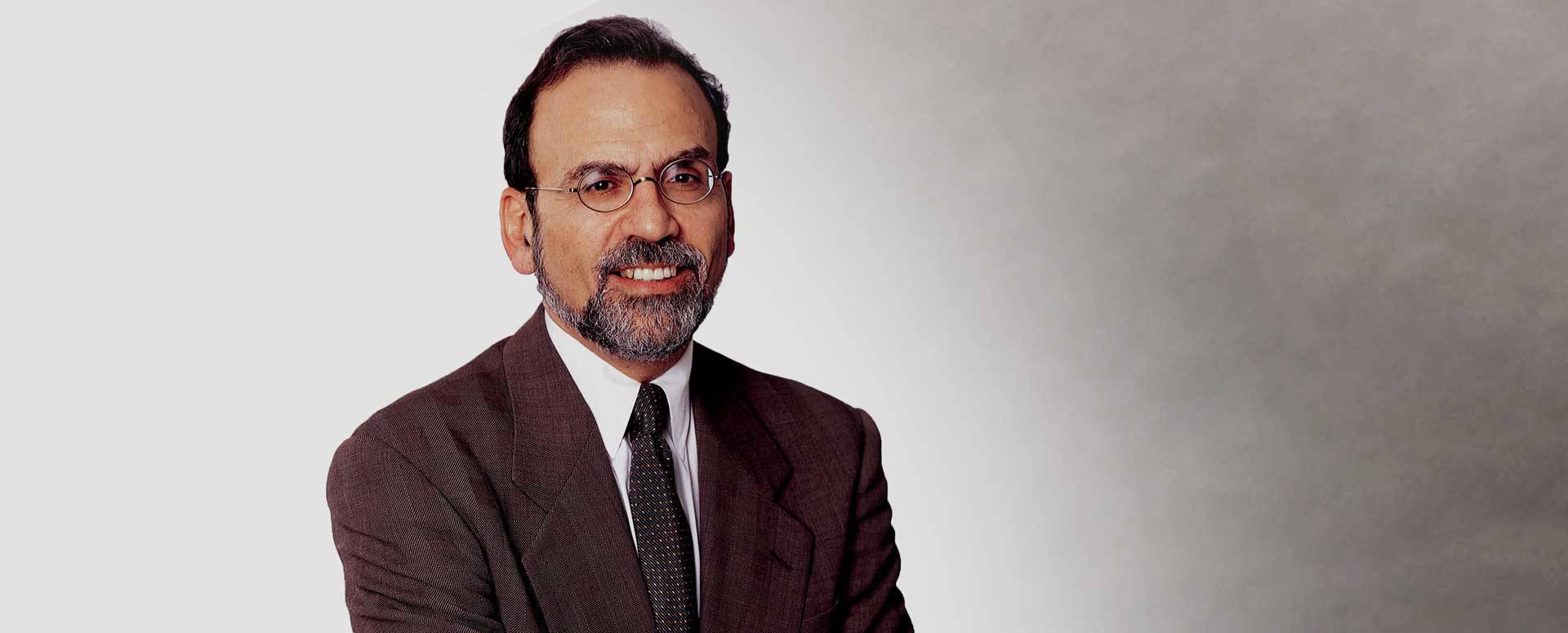
Neal Cohen
Executive Director of The Center of Bioterrorism
Neal Cohen
Executive Director of The Center of Bioterrorism
Biography
Appointed by Mayor Rudolph W. Giuliani, Dr. Neal L. Cohen served as the Commissioner of Health of New York City for four years from February 1998 to 2002. While Commissioner, Dr. Cohen oversaw the public health responses to several major crises unprecedented in the history of New York City or the nation. The West Nile virus outbreak, a disease that had never previously appeared in the Western hemisphere, the consequences of the World Trade Center tragedy, and the outbreaks of anthrax due to bioterrorism posed enormous challenges to public health. He is widely admired for having guided New Yorkers through these threats to the public health with resolve, skill, and ability, while at the same time calming their understandable fears.
Dr. Cohen also served during this period as New York City’s Commissioner of the Department of Mental Health, Mental Retardation and Alcoholism Services since his appointment in March 1996 through January 2002. As an advocate for incorporating mental health into the mainstream of the public health agenda, Dr. Cohen was a proponent for the merger of both the Health and Mental Health departments into a unified Department of Public Health which was approved by NYC voters in November 2001. The new Department of Public Health has a budget of almost $1 billion and employs 5,900 people.
Dr. Cohen was able to successfully put the vision of an integrated public health model into practice following the tragedy of September 11th. Crisis counselors worked side by side with physicians, nurses, and medical epidemiologists at the media outlets receiving bioterrorist threats and the Family Support Center in order to address both the physical and mental well-being of affected New Yorkers.
Following the events of 9/11, Dr. Cohen established the Project Liberty initiative in the City to ensure that New Yorkers receive support services, counseling, and treatments as necessary to address the impact of the trauma. He has been a strong advocate to bring mental health professionals into community settings that would offer greater outreach and de-stigmatize the acceptance of mental health care.
Prior to entering government, Dr. Cohen spent over two decades as a community psychiatrist, earning a national reputation for advancing model programs for chronic mentally ill people. At the Mount Sinai Medical Center, where he worked from 1989 to 1996, Dr. Cohen was Clinical Director and Vice Chairman of the Department of Psychiatry and Director of its Division of Community Psychiatry. From 1980 to 1989, Dr. Cohen was Director of Psychiatry at Gouverneur Hospital and Clinic Director of the Milhauser Center for Psychiatric Disorders from 1975 to 1980. Before becoming Mental Health Commissioner, he served for two years as Chair of the Department’s Community Services Board.
As Commissioner, Dr. Cohen focused on strengthening core public health and mental hygiene services and worked to develop initiatives for high risk populations. Through a comprehensive reorganization effort, Dr. Cohen created initiatives that integrate mental and public health services. He has also been a leading advocate for a more holistic approach toward treating people with co‑occurring physical, mental and substance abuse illnesses.
Under Dr. Cohen’s leadership, the Department of Public Health launched the New York City Childhood Asthma initiative, the largest urban asthma program in the country. The City saw a decline of 35% in hospitalization of children with asthma over a three year period since its inception in 1998. His other priorities have included expanding integrated disease surveillance, reducing infant mortality, improving environmental health services and getting communities more involved in public health programs.
Commissioner Cohen is the author of Psychiatry Takes to the Streets, a much acclaimed book on engaging difficult-to-reach mentally ill people. He has written and lectured extensively on public health and mental hygiene policy. Dr. Cohen has been honored by the New York Academy of Medicine, the Coalition of Voluntary Mental Health Agencies and numerous other organizations for his considerable contributions to improving urban health.
In February 2002, Dr. Cohen became the Executive Director of a newly created Center on Bioterrorism formed by a consortium of 40 of New York State’s major medical schools, academic health centers and research institutions. The Center’s goals are to lead a partnership with industry, academia, and government agencies to improve our understanding of the pathogenesis of potential bioterrorism agents and to translate this knowledge into the biotechnology that will strengthen our preparedness. Dr. Cohen played an integral role in creating a consortium of biomedical research from New York State and key partners from New Jersey and Connecticut to develop a Regional Center of Excellence for Biodefense and Emerging Infectious Diseases Research. This consortium responded successfully to a NIH request for applications to form a highly developed research and development infrastructure with strong translational research capacity to make the next generation of therapeutics, vaccines, and diagnostics against biological agents most likely to be used in a bioterrorist attack.

)
)
)